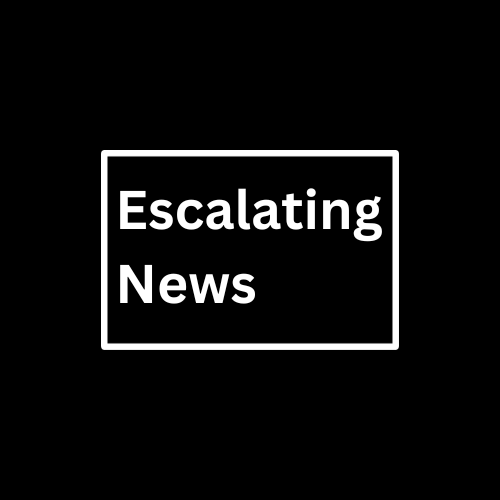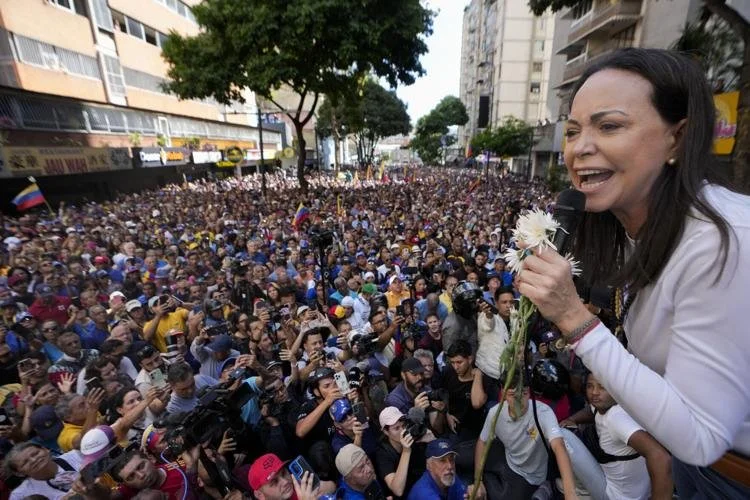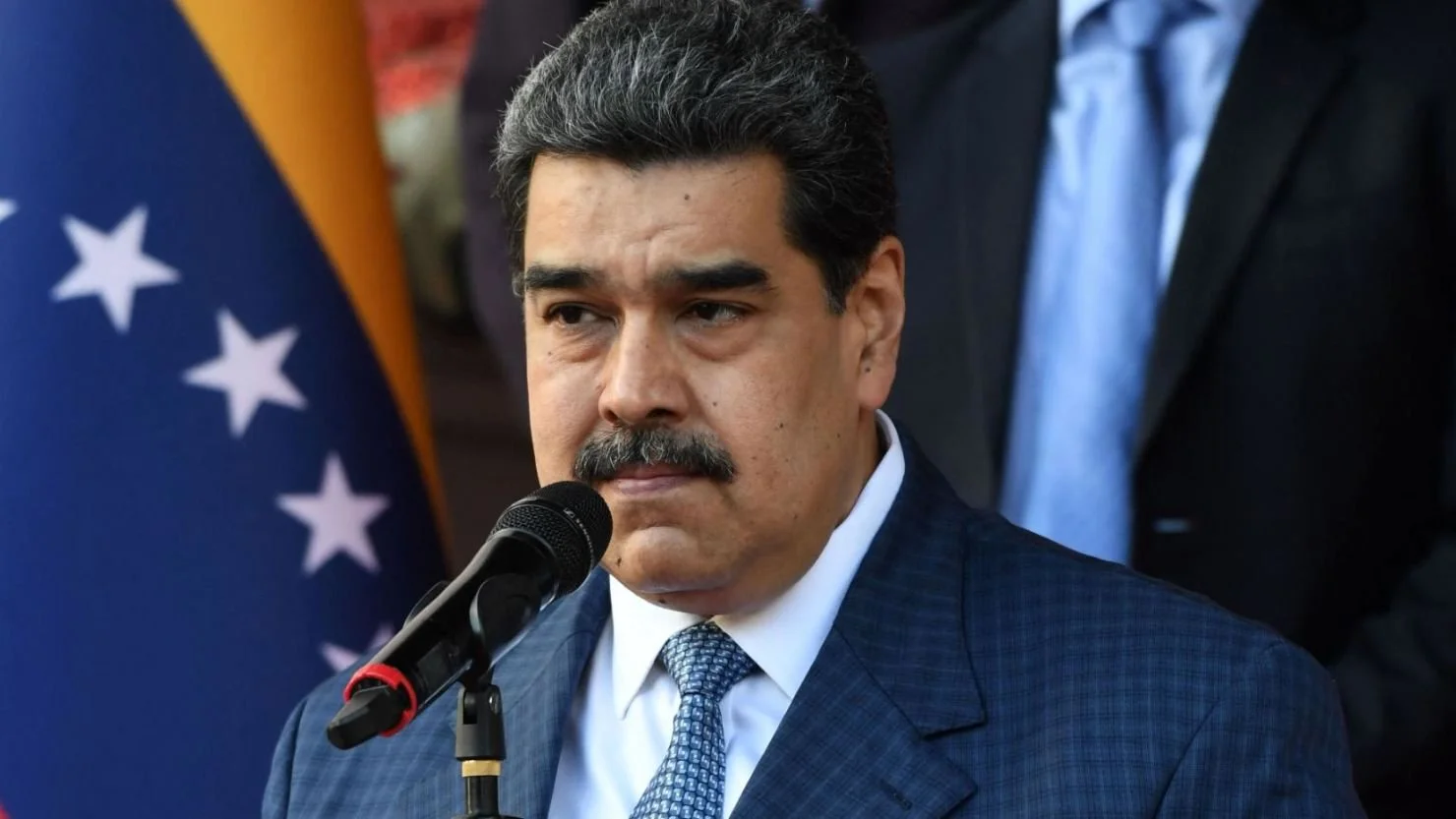PROTESTERS ERUPT AS THE PUBLIC SCREAMS CORRUPTED ELECTION
Venezuela is experiencing a deepening political and economic crisis, as widespread protests erupt in response to a disputed presidential election. Citizens across the country have taken to the streets, alleging electoral fraud and demanding transparency in the face of what they see as an illegitimate election process. The unrest has intensified calls for democratic reforms and accountability from President Nicolás Maduro’s government, which has been accused of authoritarianism and corruption throughout his tenure.
Election Disputes and Opposition Claims
Opposition leader Maria Corina Machado speaks to protesters
The controversial election, which took place amid an atmosphere of political tension, has sparked widespread allegations of fraud. Many Venezuelans believe the election was manipulated to secure another term for President Nicolás Maduro, who has been in power since 2013. Maduro’s government has faced years of criticism for its handling of the economy, human rights abuses, and suppression of political opposition. Despite these concerns, Maduro’s administration insists that the election was legitimate and that his victory was a reflection of the will of the people.
However, the opposition, led by Edmundo González, disputes the election results, claiming that he was the rightful winner. González and his supporters argue that the election process was neither free nor fair, citing alleged irregularities and a lack of transparency. In response, the opposition has called for an independent investigation into the results, with many protesters demanding the release of a full, transparent audit of the election.
Economic Crisis Fuels Discontent
The protests, however, are not solely about the election. Venezuela has been grappling with a severe economic crisis for years, and many citizens are now voicing frustration over the worsening living conditions under Maduro’s regime. The country is facing a crippling economic collapse, marked by rampant hyperinflation, a collapsed oil industry, and widespread shortages of food, medicine, and other essential goods.
Hyperinflation has rendered the local currency virtually worthless, making basic goods unaffordable for the average Venezuelan. The scarcity of food and medicine has led to widespread malnutrition and a deteriorating public health system. Venezuela’s healthcare infrastructure is struggling to meet the needs of the population, with many hospitals lacking basic medical supplies and healthcare workers fleeing the country in search of better opportunities abroad.
These economic difficulties have led to a growing sense of desperation among the Venezuelan people, with protests becoming as much about survival as they are about political change. Demonstrators are calling for an improvement in living conditions, an end to the widespread poverty, and a return to economic stability. The protests reflect widespread dissatisfaction with an administration that many feel has failed to address the country’s most pressing issues.
Government Response: Heavy Security and Clashes
In response to the protests, the Maduro government has ramped up its security presence, deploying riot police and military forces to suppress the demonstrations. Clashes between protesters and law enforcement have resulted in casualties, injuries, and arrests, further fueling public outrage. Human rights groups have condemned the government's use of force, calling for restraint and urging authorities to respect the rights of peaceful demonstrators.
One of the flashpoints in the crisis came with the brief detention of opposition leader María Corina Machado. Machado, a vocal critic of Maduro, was arrested during the protests, prompting widespread condemnation both within Venezuela and internationally. Her detention is seen as a symbol of the government’s increasing crackdown on political opposition and its willingness to stifle dissent. This move has only heightened tensions, and further protests have erupted in response to her arrest.
Maduro's Inauguration: A Divided Venezuela
Venezuela’s President Nicolás Maduro
Despite the growing unrest, Maduro's inauguration took place under strict security measures, signaling the government's resolve to maintain control amid widespread opposition. The ceremony, which was held in the midst of protests, highlighted the deep divide between Maduro’s administration and large segments of the Venezuelan population. While Maduro maintains that the election was fair and that his victory is legitimate, many Venezuelans reject this narrative, arguing that the election was manipulated to keep him in power.
As protests continue to mount, the opposition has called for major democratic reforms, including the establishment of a more transparent electoral system and the release of political prisoners. Opposition leaders are urging the international community to support their calls for change, and many have called for greater pressure on Maduro’s government to restore democratic processes and human rights in the country.
The Road Ahead for Venezuela
Venezuela now stands at a crossroads, with its future uncertain. The country’s political and economic crisis shows no signs of abating, and the coming days will likely determine the future trajectory of the nation. While the Maduro administration maintains a tight grip on power, large segments of the population continue to demand significant changes, including free and fair elections, improved living conditions, and an end to the authoritarian practices of the current regime.
The eyes of the international community are now on Venezuela, as the country navigates this volatile period in its history. Global leaders have called for dialogue and the restoration of democratic processes, while human rights organizations have raised concerns over the government’s crackdown on protesters and opposition leaders. As the situation unfolds, it remains to be seen whether Venezuela can find a peaceful resolution to its crisis or if the country will continue to spiral into further instability.
Venezuela's struggle for political, economic, and social change is far from over, and the people’s fight for justice and democracy continues.


